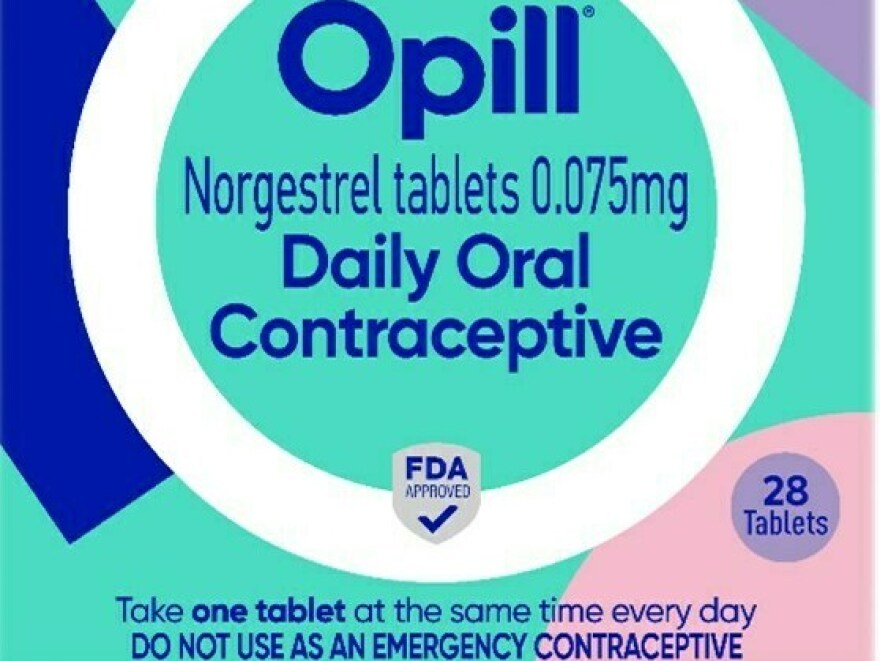Updated March 18, 2024 at 11:46 AM ET
Opill, the first oral contraceptive pill to be available without a prescription in the U.S., is now available to buy online at opill.com.
The daily pill shipped to retailers nationwide in early March. It will be sold online starting today and in the family planning aisle of drugstores, convenience stores and supermarkets later this month, drugmaker Perrigo said.
The drug itself has been around for decades, but manufacturers have been working nine years toward making it available over the counter. Here's what else to know about Opill.
What's in it?
Opill is a daily progestin-only pill, meaning there's no estrogen in it. That's why this kind of pill is sometimes called a mini-pill.
This isn't a new kind of birth control pill. The drug substance was originally approved for prescription use in 1973, according to the Food and Drug Administration. But this is the first birth control pill that has been approved for use without a prescription from a health care provider.
"We have been working on it for nine years and got approval in July 2023 from the FDA to move forward. And it's been kind of full-steam ahead since that day," says Triona Schmelter, an executive at Perrigo, which manufactures Opill.
Is it safe? And does it work?
Yes. Like many other oral contraceptives, it's 98% effective at preventing pregnancy if taken correctly. It should start to work 48 hours after taking the first dose. Potential side effects include headaches, bloating and cramping.
The FDA convened its panel of outside experts to advise it on this approval back in May, and the panel voted unanimously in favor of approval.
They said that the labeling alone was enough for people to be able to use Opill correctly without a doctor's help.
"The progestin-only pill has an extremely high safety profile, and virtually no one can have a health concern using a progestin-only pill," Dr.Sarah Prager, a professor of obstetrics and gynecology at the University of Washington School of Medicine, told NPR in July when Opill was first approved by the FDA.
Where will it be sold?
Amazon and opill.com, a website operated by Perrigo, are selling Opill starting March 18. It will be sold in 3- and 6-month supplies.
Major retailers will sell Opill alongside condoms and pregnancy tests.
CVS says Opill will be available in 7,500 of its pharmacy stores in early April.
How much will it cost?
A month's supply of Opill has a recommended retail price of $19.99. It will be a little cheaper to buy in bulk, however, with a three-month supply costing $49.99. Opill.com will also sell a six-month supply for $89.99.
Although birth control pills are available to people with insurance without a copay due to the Affordable Care Act, not everyone wants their birth control pill to show up on their insurance, so they may choose to pay out of pocket.
Schmelter says Perrigo has also set up a patient assistance program for people who don't have insurance and can't afford Opill.
Who is this for?
This is for people who want to prevent pregnancy but perhaps aren't able to visit their health care provider to get a prescription. They may be in between medical appointments, or they may be teens who otherwise aren't able to access reproductive health care.
"It doesn't require a doctor's visit, which means it doesn't require time off work or potentially a babysitter or finding a doctor," Schmelter says. "You can walk into any local retailer and, in the family planning section, pick it up at your convenience."
"When it comes from Opill.com, the packaging will be discreet," Schmelter says. "It's nobody's business but your own."
Copyright 2024 NPR. To see more, visit https://www.npr.org.


